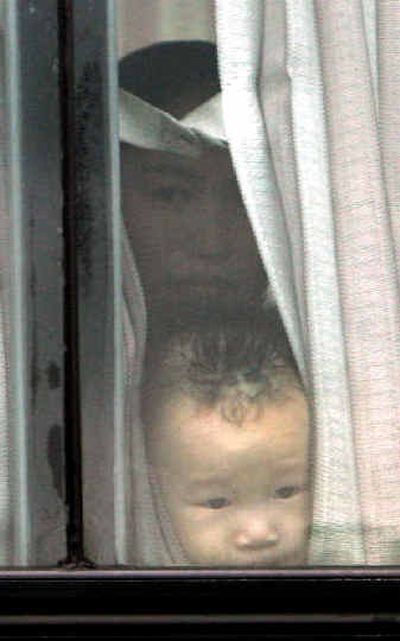Hundreds arrive in S. Korea

SEOUL, South Korea – A second wave of North Korean defectors arrived in the capital today, bringing the total in a two-day airlift from an unidentified Asian country to nearly 460, South Korea’s Yonhap news agency said.
It was easily the largest group of defectors ever to reach the South. All had recently fled the communist North and taken refuge in hopes of eventually reaching South Korea.
Today’s group of 227 North Koreans arrived at Incheon International Airport on a chartered Korean Air plane arranged by the South Korean government
South Korean government officials have been reluctant to confirm the arrival of the North Koreans and have declined to reveal which country they are coming from, but news reports said that 230 arrived Tuesday.
A trickle of defectors to the South has grown into a steady stream in recent years as more North Koreans flee hunger and repression in their communist country, mostly fleeing across its long border with China before heading to other countries.
Human rights groups have said that hundreds of North Koreans were living in Vietnam, Thailand, Cambodia and other Southeast Asian countries, and were eager to travel to South Korea.
The government has barred reporters from covering the arrival of the defectors. But television footage captured from afar Tuesday showed the first group arriving and then being swiftly taken away in five buses.
The government typically puts defectors through a month of questioning before giving them a two-month orientation course on how to make their way in their new capitalist home.
Analysts cautioned against interpreting the arrivals as heralding further mass defections from the communist state.
Koh Yu-hwan, a North Korea expert in Seoul, said North Korea probably would try to crack down harder on its citizens seeking to defect.
Over 5,000 North Koreans have defected to South Korea since the 1950-53 Korean War. Last year, the number of defectors arriving in the South reached 1,285, up from 1,140 in 2002 and 583 in 2001.
The Koreas were divided in 1945. Their border remains sealed and heavily guarded by nearly 2 million troops on both sides following the 1950-53 Korean War that ended in a truce, not a peace treaty.